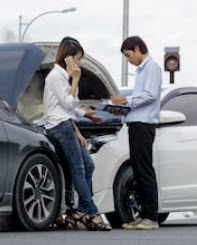Traditional evidence, like witness statements and the police accident report, can be important building blocks in most negligence cases. But there are problems with these tried-and-true proof methods.
For example, witnesses are sometimes biased or incompetent. These strong-sounding words simply mean that their testimony is not always 100 percent accurate, even if their intentions are pure. Furthermore, the police accident report is often incomplete or inaccurate. Most emergency responders conduct only cursory pre-report investigations.
As a result, electronic evidence, like the Event Data Recorder, may be extremely important in your car crash claim. Such electronic evidence helps an attorney obtain maximum compensation in these cases. This compensation usually includes money for economic losses, such as medical bills, and noneconomic losses, such as pain and suffering.
EDR Nuts and Bolts
Basically, an EDR is much like a black box flight recorder (which is actually orange) n a commercial jet. Flight recorders help investigators piece together the final moments before an aviation crash, so they can make a fault determination.
EDRs play basically the same role in a vehicle collision. Capacity varies by make and model. But most of these gadgets capture and record items like:
- Vehicle speed,
- Brake application,
- Steering angle,
- Engine RPM, and
- Other key performance metrics.
The government’s EDR mandate began taking effect in the early 2000s. Today, almost all cars and trucks on the road have an Event Data Recorder.
Assuming the device is working properly, EDR information is usually always complete and accurate, unlike witness statements and police reports. So, it’s almost impossible for insurance company lawyer to keep this evidence away from a Florida jury. Of course, that’s assuming a Brandon personal injury attorney has access to this vital information.
EDR Issues
Insurance company lawyers know that the Event Data Recorder can make or break a case. So, they employ a number of legal hurdles to keep this information out of a personal injury attorney’s hands.
Florida has extremely strict vehicle data privacy laws. These provisions limit access to things like an EDR. Normally, these laws are just procedural matters. But insurance company lawyers often use them to block access to the EDR.
As a result, attorneys typically need court orders to access and download the data on these devices. Insurance company lawyers do their best to deny or limit access, so you need an equally aggressive attorney on your side.
As a side note, most EDRs are technically sophisticated. Even if an attorney receives legal access, technical access is another matter. This evidence collection area requires specialized resources, or easy access to these resources.
Moreover, most insurance companies destroy totaled vehicles within a few days. If that happens, any physical evidence which the car contains, including the EDR, will be gone forever.
To prevent this outcome, attorneys send spoliation letters to insurance companies. These letters create a legal duty to preserve all physical evidence in the case, including the EDR. If the insurance company ignores the spoliation letter, most Florida judges react very harshly.
Rely on Aggressive Attorneys
Electronic evidence, including the EDR, is vital in many car crash claims. For a free consultation with an experienced Brandon car accident attorney, contact Reed & Reed, Attorneys at Law. We have four area offices (St. Petersburg, Lakeland, Tampa, and Clearwater).
Resource:
nhtsa.gov/research-data/event-data-recorder
https://needreed.com/floridas-get-tough-distracted-driving-ban-moves-forward/

